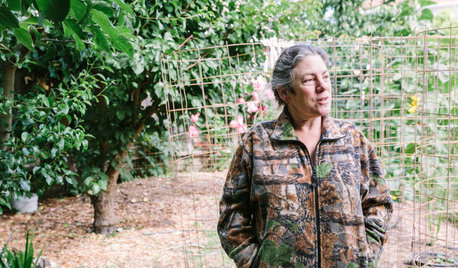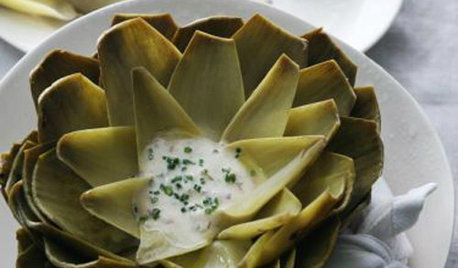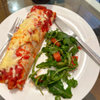'Jewish Foods' Are For Everyone
disneyginger
16 years ago
Related Stories

DECORATING GUIDESDiscover the Rug Type Everyone Wants
You can clean them quickly. They come in every color and pattern imaginable. You can score one cheap. Say hello to flat-weave rugs
Full Story
INSPIRING GARDENSA Melbourne Backyard Entices Everyone Outside
Music lovers add a pool, pizza oven and fire pit for a yard that’s a big hit with the whole family
Full Story
UNIVERSAL DESIGNDesign for All: Creating a Home That Works for Everyone
Universal design makes life better whether you are 3 or 103
Full Story
FARM YOUR YARDTo Get the Food They Believe In, These Urbanites Grow Their Own
Home gardeners farming on their city lots find that local, organic food isn’t the only reward
Full Story
KITCHEN DESIGNWorld of Design: Favorite Recipes From Food Lovers Around the Globe
Travel with your tastebuds and experience for yourself these international foodies' favorite dishes
Full Story
FARM YOUR YARDHello, Honey: Beekeeping Anywhere for Fun, Food and Good Deeds
We need pollinators, and they increasingly need us too. Here, why and how to be a bee friend
Full Story
FARM YOUR YARD6 Things to Know Before You Start Growing Your Own Food
It takes time and practice, but growing edibles in the suburbs or city is possible with smart prep and patience
Full Story
FRONT YARD IDEASWelcome Edibles Into the Front Yard for Fresh Food and More
Give your front yard design a boost and maybe even make new friends by growing fruits and vegetables
Full Story
KITCHEN STORAGEPantry Placement: How to Find the Sweet Spot for Food Storage
Maybe it's a walk-in. Maybe it's cabinets flanking the fridge. We help you figure out the best kitchen pantry type and location for you
Full Story
The New Simplicity: Today's Style for Food and Home
Make yourself at home with a more relaxed style at the table — and in interior design
Full Story0
Sponsored
Custom Craftsmanship & Construction Solutions in Franklin County




lindac
bubbeskitchen
Related Discussions
jewish pickes
Q
If you're looking for a good Jewish baking cookbook...
Q
Jewish Christmas
Q
Anyone have Jewish ancestry that they would like to celebrate more?
Q
compumom
Carol Schmertzler Siegel
annie1992
Carol Schmertzler Siegel
rachelellen
sally2_gw
ann_t
lowspark
maggie2094
disneygingerOriginal Author
lindac
lowspark
maureen_me
gellchom
TACHE
arley_gw
neesie
gellchom
disneygingerOriginal Author
lowspark
BeverlyAL
bubbeskitchen
eileenlaunonen
jannie
gellchom
bubbeskitchen
lowspark
gellchom
lowspark